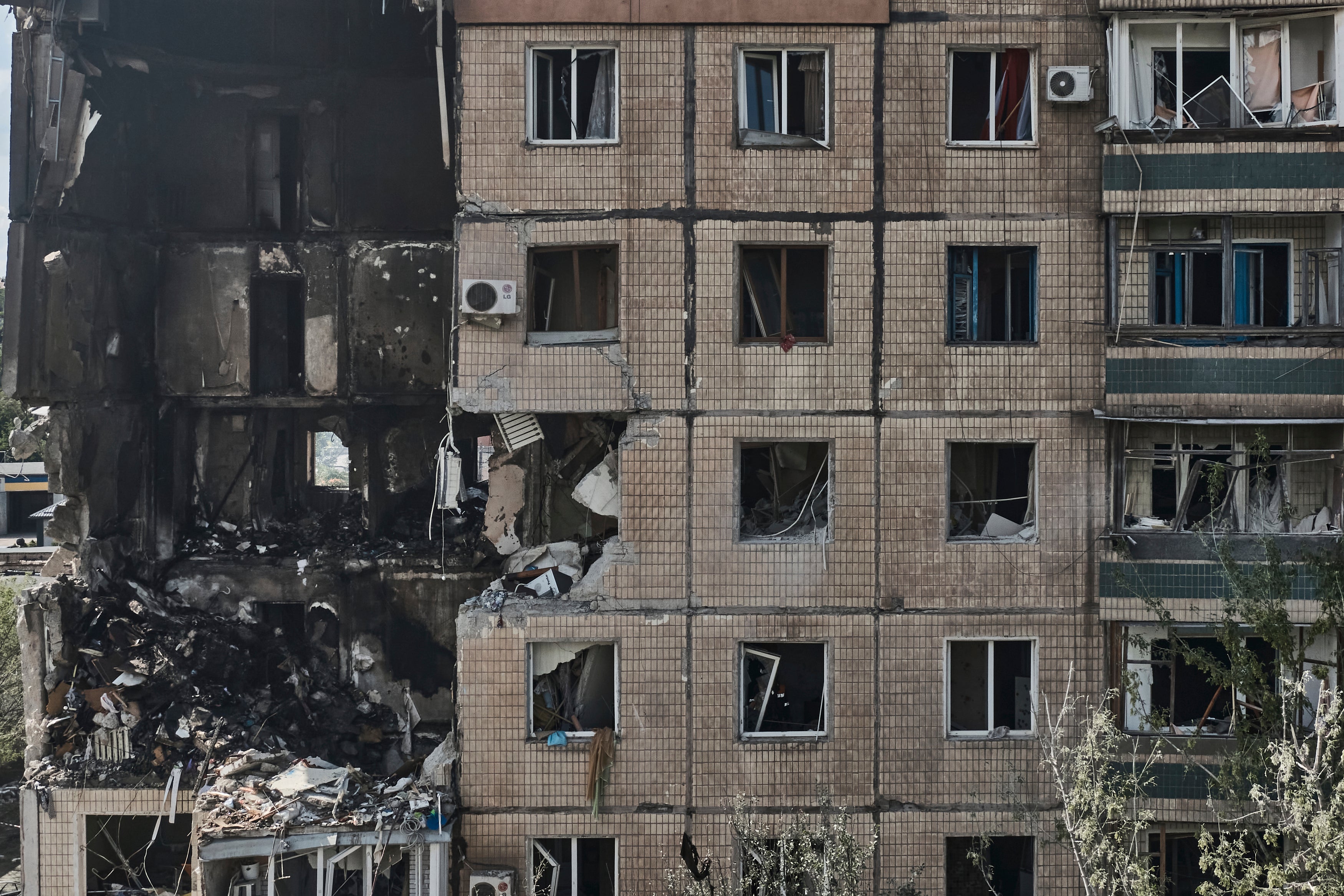The $3.9 billion UN humanitarian appeal for Ukraine is only 30% funded, UN aid official says
The $3.9 billion humanitarian appeal for war-torn Ukraine is less than 30% funded as the country starts preparing for a second winter with more residential buildings damaged and destroyed and thousands of people homeless following the collapse of the Kakhovka dam

Your support helps us to tell the story
From reproductive rights to climate change to Big Tech, The Independent is on the ground when the story is developing. Whether it's investigating the financials of Elon Musk's pro-Trump PAC or producing our latest documentary, 'The A Word', which shines a light on the American women fighting for reproductive rights, we know how important it is to parse out the facts from the messaging.
At such a critical moment in US history, we need reporters on the ground. Your donation allows us to keep sending journalists to speak to both sides of the story.
The Independent is trusted by Americans across the entire political spectrum. And unlike many other quality news outlets, we choose not to lock Americans out of our reporting and analysis with paywalls. We believe quality journalism should be available to everyone, paid for by those who can afford it.
Your support makes all the difference.The $3.9 billion humanitarian appeal for war-torn Ukraine is less than 30% funded as the country starts preparing for a second winter with more residential buildings damaged and destroyed and thousands of people homeless following the collapse of the Kakhovka dam, the country's U.N. humanitarian coordinator said Monday.
Denise Brown told a virtual news conference from Kyiv that 17 million Ukrainians need aid and the U.N. is targeting between 11 million and 12 million — but funding is becoming a serious issue.
A report last week from the U.N. humanitarian office said lack of funding “is hampering operations, adding to the challenges imposed by insecurity and other obstacles.”
By the end of June, it said, the U.N. and its humanitarian partners reached 7.3 million people but in some parts of Ukraine’s south, east and north, more than 25% of targeted people couldn't be reached “due to a combination of funding shortages and other operational challenges.”
Brown stressed that winter starts early in Ukraine and a top priority is ensuring shelter for people who have lost their homes this year. Another priority is the growing need for psycho-social support for people who have struggled through 17 months of war, she said.
The rupture of the Kakhovka hydroelectric dam and emptying of its reservoir on the Dnieper River in southern Ukraine on June 7 added to the misery in a region that has suffered from artillery and missile attacks and has now seen thousands of people left homeless and swathes of agricultural land destroyed.
Each side has accused the other of destroying the dam, but the various Russian allegations — that it was hit by a missile or taken down by explosives — fail to account for a blast so strong that it registered on seismic monitors in the region.
Brown said a government-led assessment is under way with support from the U.N., European Union and World Bank on needs following the dam collapse and should be ready “in a couple of weeks.” She said acute needs have been managed, but “longer-term needs are very large.”
What all this means, Brown said, is that “the needs of the population are increasing.”
“We know that donors are doing their best, but the needs are enormous,” she said. ”I’m hopeful that funding will come.”
Ukraine is far from alone in facing a serious funding shortfall.
On Friday, a top U.N. official said the United Nations has been forced to cut food, cash payments and assistance to millions of people in many countries because of “a crippling funding crisis” that has seen its donations plummet by about half as acute hunger is hitting record levels.
Carl Skau, deputy executive director of the U.N. World Food Program, told a news conference that at least 38 of the 86 countries where WFP operates have already seen cuts or plan to cut assistance soon -- including in Afghanistan, Syria, Yemen and West Africa.